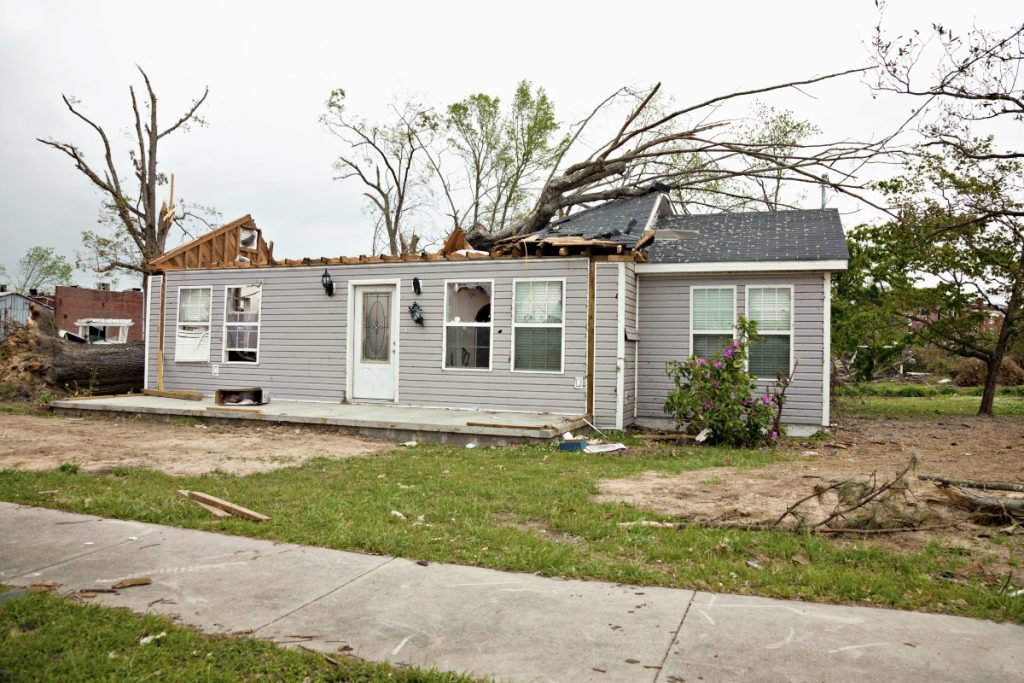Mother Nature can be ruthless at times, and we are powerless to stop whatever she has to bring to the Earth. Earthquakes, tsunamis, tornadoes, hurricanes—natural disasters devastate the lives of billions of people around the world every year, often leaving entire cities ruined in their wake. So, what can we do to protect ourselves against natural phenomena that are out of our control?
The answer is making the right preparations. You never know when Mother Nature will strike next, so here are some of the best ways you can protect your home—and consequently, yourself and your family—from the destruction of natural disasters:
1. Install stronger windows
Call a window replacement company near you and ask about storm-proof or anti-shatter windows. Whether or not you live in an area prone to hurricanes, having strong windows is one of the best ways to protect your home from natural and man-made damage. For one, storm-proof windows increase your home’s protection against strong winds and flying objects. Moreover, these windows do not shatter easily, which means that they can also protect you against home invasions.
2. Secure heavy objects down
To prevent heavy objects from toppling over and breaking or, worse, injuring someone in the event of an earthquake, bolt them down to the wall. This includes TVs, bookcases, hutches, storage racks, and other heavy pieces of furniture.
More than that, avoid placing heavy items near where people sit or sleep, including picture frames, shelves, and mirrors.
3. Bolt your home to its foundation
If you live in an area that experiences earthquakes, bolt your home to the foundation to prevent them from separating and causing thousands of dollars worth of damage. In the process of bolting down your home, a professional will secure the sill plate of your home to the foundation using anchor bolts, which can withstand the strength of earthquakes.
4. Replace your garage door
A flimsy garage door can easily fly off during a hurricane, which allows the strong winds to enter your home and may also build enough pressure to blow your roof off. Reinforce or replace your garage door to make it more resistant to strong winds to prevent such a disastrous event in your home.
5. Install backflow valves
During hurricanes and storms, immense amounts of floodwater can push sewage back into your drain pipes and into your home. Not only is sewage a major health hazard, but it can also cause thousands of dollars in damage to your home. To avoid this, install backflow valves in your piping system to prevent sewage from backing up into your home.
More than that, have a professional check your sewer tank regularly to ensure that it is not on its way to overflowing, ideally before the rainy season comes.

6. Buy flood barriers
Flood barriers are small adjustable structures that you can fit in your doors to prevent floodwater from entering your home. Whether you live in a flood-prone area or not, it helps to have these emergency barriers just in case. Alternatively, you can also use sandbags to block water from entering your home.
7. Use fire-resistant materials
Wildfires can cause massive amounts of damage to properties, sometimes even decimating entire neighborhoods. If you live in an area that is prone to wildfires, consider reconstructing parts of your home using fire-resistant materials. For example, you can replace your roof with stone, metal tiles, or stone, which are more resistant to fire than other materials. You can also create a fire-stopping landscape to slow down the fire and prevent it from spreading to your home.
8. Secure outdoor items
If the threat of strong winds is high, secure any and all outdoor belongings as soon as possible, including furniture, equipment, and flower pots. Strong winds can turn objects left outside into projectiles, which can cause damage to your home’s exterior or even crash into your windows.
9. Address cracks, gaps, and holes
Inspect your home for signs of damage periodically, especially if you live in a hurricane- and flood-prone area. These holes or gaps can allow floodwater to enter your home, which can lead to extensive water damage. Moreover, they serve as entryways for all sorts of pests, which is another problem in and of itself.
These are just some of the ways you can reduce your home’s risk of damage during natural disasters, but they can be enough to protect your home against major disasters like earthquakes, hurricanes, and floods. On top of these preventive measures, ensure that you have a home insurance policy as well to cover inevitable damage.




